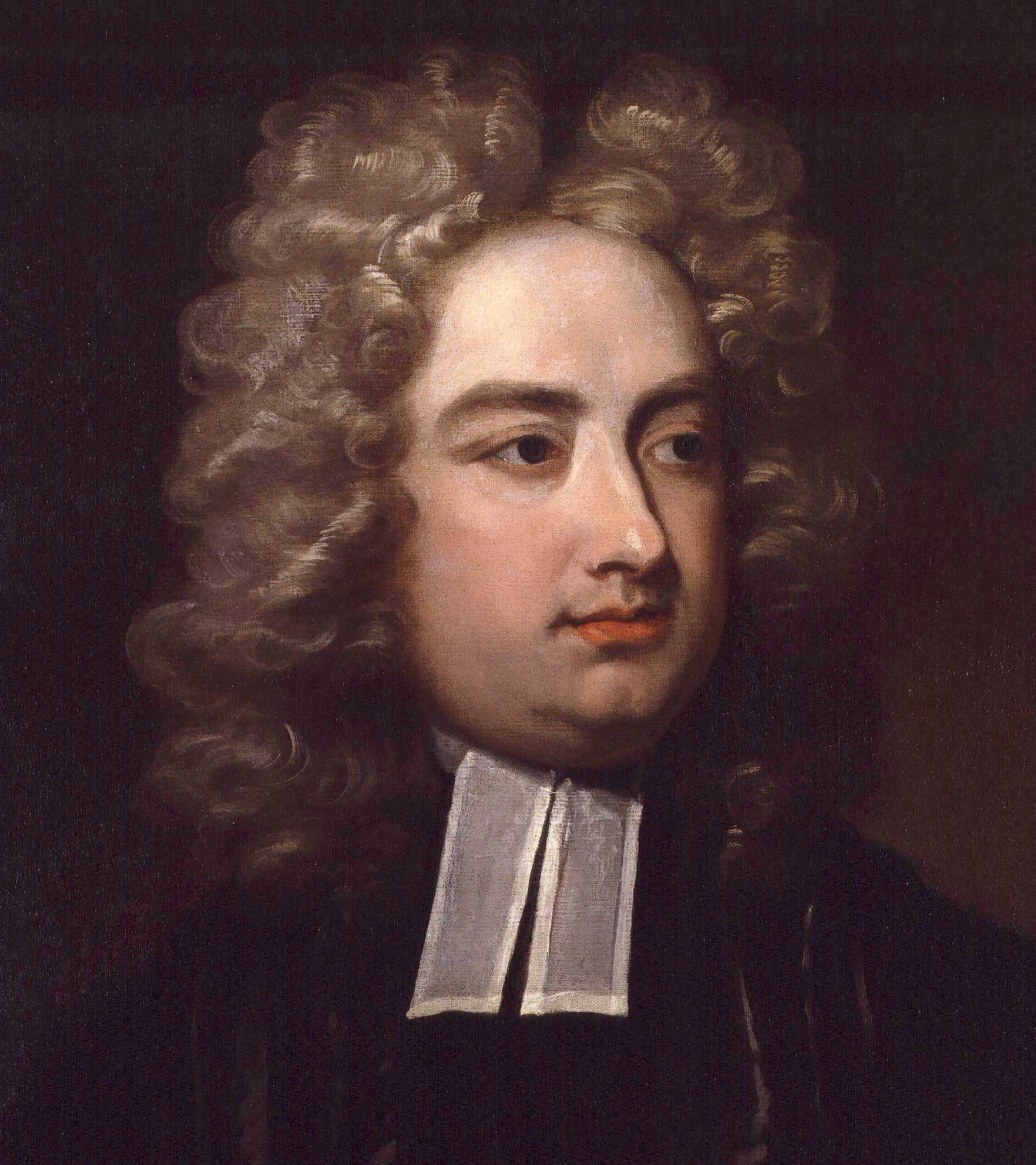Jonathan Swift najznámejšie citáty

„Každý si želá dlho žiť, ale nikto nechce byť starý.“
Prisudzované výroky
Zdroj: [KOTRMANOVÁ, Milada.: Perly ducha. Ostrava: Knižní expres, 1996 ISBN 80-902272-1-X]
„Jeden nepriateľ ťa môže zraniť skôr, ako desať priateľov spraví pre teba niečo dobré.“
Prisudzované výroky
Zdroj: [KOTRMANOVÁ, Milada.: Perly ducha. Ostrava: Knižní expres, 1996 ISBN 80-902272-1-X]
Jonathan Swift Citáty o ľuďoch
Jonathan Swift Citáty o živote
„Drobné starosti stačia na to, aby nám otrávili život, ak nemáme veľké.“
Prisudzované výroky
Zdroj: [KOTRMANOVÁ, Milada.: Perly ducha. Ostrava: Knižní expres, 1996 ISBN 80-902272-1-X]
Jonathan Swift citáty a výroky
Prisudzované výroky
Zdroj: [KOTRMANOVÁ, Milada.: Perly ducha. Ostrava: Knižní expres, 1996 ISBN 80-902272-1-X]
„Dokiaľ nevyhrávam, samozrejme že plačem, pretože karty sú zlé zamiešané.“
Prisudzované výroky
Zdroj: [KOTRMANOVÁ, Milada.: Perly ducha. Ostrava: Knižní expres, 1996 ISBN 80-902272-1-X]
„Existujú márniví muži, ktorí sú hrdí na tie, ktoré im nasadzujú parohy.“
Varianta: Jestvujú márniví muži, ktorí sú hrdí na tých, čo im nasadzujú parohy.
Jonathan Swift: Citáty v angličtine
Thoughts on Various Subjects from Miscellanies (1711-1726)
“I shall be like that tree; I shall die from the top.”
Predicting that he would go senile, as quoted in The Highway of Letters and its Echos of Famous Footsteps (1893) by Thomas Archer, p. 380
Thoughts on Various Subjects from Miscellanies (1711-1726)
“So weak thou art, that fools thy power despise;
And yet so strong, thou triumph'st o'er the wise.”
To Love, found in Miss Vanhomrigh's desk after her death, in Swift's handwriting
“Reason is a very light rider and easily shook off.”
As quoted in The World's Laconics : Or, The Best Thoughts Of The Best Authors (1827) by Johan TImbs, p. 25
Thoughts on Various Subjects from Miscellanies (1711-1726)
“Hobbes clearly proves that every creature
Lives in a state of war by nature.”
On Poetry: Poetry, a Rhapsody (1733)
Brother Protestants; reported in Bartlett's Familiar Quotations, 10th ed. (1919)
Thoughts on Various Subjects from Miscellanies (1711-1726)
“Not die here in a rage, like a poisoned rat in a hole.”
Letter to Bolingbroke (March 21, 1729); reported in Bartlett's Familiar Quotations, 10th ed. (1919)
“I have fed like a farmer: I shall grow as fat as a porpoise.”
Polite Conversation (1738), Dialogue 2
“Lord, I wonder what fool it was that first invented kissing!”
Polite Conversation (1738), Dialogue 2
“She has more goodnessin her little finger, than he has in his whole body.”
Polite Conversation (1738), Dialogue 2
“Here is laid the Body
of Jonathan Swift, Doctor of Sacred Theology,
Dean of this Cathedral Church,
where fierce Indignation
can no longer
injure the Heart.
Go forth, Voyager,
and copy, if you can,
this vigorous (to the best of his ability)
Champion of Liberty.”
Hic depositum est Corpus
IONATHAN SWIFT S.T.D.
Hujus Ecclesiæ Cathedralis
Decani,
Ubi sæva Indignatio
Ulterius
Cor lacerare nequit,
Abi Viator
Et imitare, si poteris,
Strenuum pro virili
Libertatis Vindicatorem.
Hic depositum est Corpus
IONATHAN SWIFT S.T.D.
Hujus Ecclesiæ Cathedralis
Decani,
Ubi sæva Indignatio
Ulterius
Cor lacerare nequit,
Abi Viator
Et imitare, si poteris,
Strenuum pro virili
Libertatis Vindicatorem.
Latin epitaph for himself (1740)
Variant translations:
Swift has sailed into his rest;
Savage indignation there
Cannot lacerate his Breast.
Imitate him if you dare,
World-Besotted Traveler; he
Served human liberty.
W. B. Yeats, in The Winding Stair (1933)
Here is laid the body of Jonathan Swift, Doctor of Divinity, Dean of this Cathedral Church, where savage indignation can no longer tear his heart. Go, traveller, and imitate if you can one who strove with all his might to champion liberty.
As translated in John Mullan's review of Jonathan Swift by Victoria Glendinning, in London Review of Books, Vol. 20 No. 21 (29 October 1998)
Epitaph (1740)
“Where Young must torture his invention
To flatter knaves, or lose his pension.”
On Poetry: Poetry, a Rhapsody (1733)
“But nothing is so hard for those who abound in riches, as to conceive how others can be in want.”
A Preface to the Bishop of Sarum's Introduction to the Third Volume of the History of the Reformation of the Church of England (8 December, 1713)
“Then gave him some familiar Thumps,
A College Joke to cure the Dumps.”
Cassinus and Peter: A Tragical Elegy (1734); reported in Bartlett's Familiar Quotations, 10th ed. (1919)
“Better belly burst than good liquor be lost.”
Earlier proverb, quoted in James Howell's English Proverbs (1659)
Better belly burst than good drink lost.
Polite Conversation (1738), Dialogue 2
Thoughts on Various Subjects from Miscellanies (1711-1726)
Thoughts on Various Subjects from Miscellanies (1711-1726)
